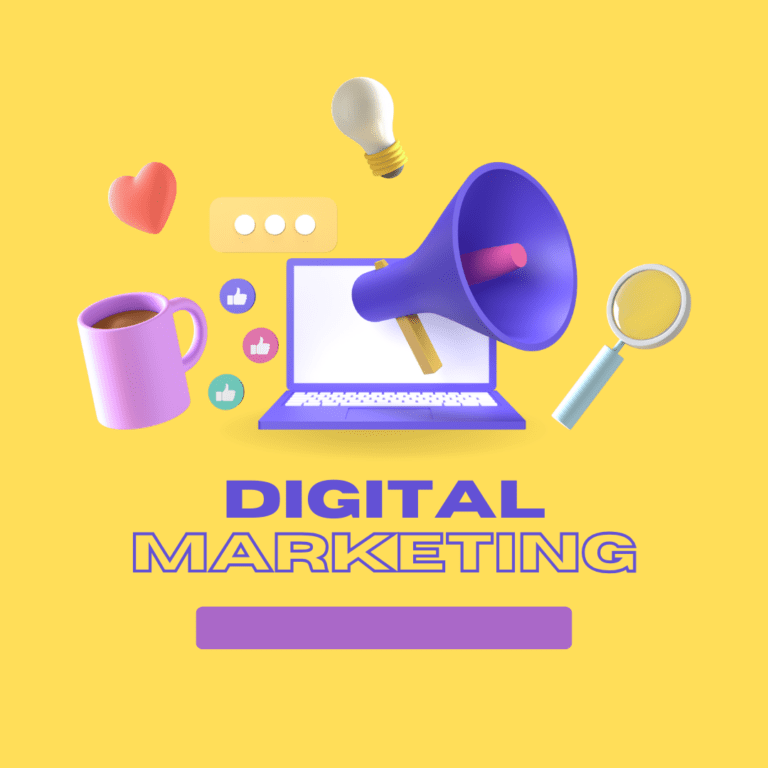How Digital Marketing is Useful for Real Estate Business: Digital Marketing for Real Estate
In today’s fast-paced digital era, traditional methods of advertising are no longer sufficient to reach and engage potential clients. The real estate industry, like many others, has embraced the digital landscape to enhance its marketing efforts. This shift has made digital marketing indispensable for achieving success in real estate. Let’s explore how digital marketing is useful for real estate business and why it’s a game-changer for property professionals.

1. Expanding Reach with Digital Platforms
Digital marketing for real estate provides an opportunity to connect with a vast audience across various online platforms. Social media channels like Facebook, Instagram, and LinkedIn enable realtors to showcase properties to potential buyers and investors, regardless of their location. By leveraging targeted ads and analytics, real estate businesses can ensure their content reaches the right audience at the right time.

2. Cost-Effective Advertising
Traditional real estate marketing, such as print ads and billboards, often comes with high costs. On the other hand, digital marketing offers a cost-effective solution to promote properties. Through pay-per-click (PPC) advertising, email marketing, and social media campaigns, realtors can generate quality leads at a fraction of the cost, making digital marketing for real estate a smart investment.

3. Showcasing Properties Effectively
High-quality images, virtual tours, and 360-degree videos allow potential buyers to experience properties without visiting them physically. Digital marketing for real estate enables businesses to create visually engaging content that highlights the unique features of each property, making listings more appealing. This approach not only saves time for clients but also increases the chances of closing deals.
4. Search Engine Optimization (SEO)
SEO plays a crucial role in driving organic traffic to real estate websites. By optimizing your website with the right keywords, like “digital marketing for real estate,” and creating valuable content, your business can rank higher on search engine results pages (SERPs). This increased visibility attracts more visitors to your site, enhancing your chances of converting leads into clients.

5. Generating Quality Leads
One of the most significant advantages of digital marketing for real estate is its ability to generate quality leads. Platforms like Google Ads and Facebook Ads allow businesses to target specific demographics, including age, location, income level, and interests. This precision ensures that your marketing efforts are directed toward individuals who are most likely to convert, maximizing your ROI.
6. Building Trust through Online Presence
A strong online presence builds credibility and trust among potential clients. A well-designed website, active social media profiles, and positive customer reviews reflect professionalism and reliability. Digital marketing for real estate helps create a consistent brand image, which is essential for attracting and retaining clients.

7. Real-Time Interaction and Engagement
Digital marketing for real estate allows businesses to interact with their audience in real time. Features like chatbots on websites and instant messaging on social media platforms enable quick responses to inquiries. This instant communication enhances customer satisfaction and fosters stronger relationships with potential buyers.
8. Analysing Performance with Metrics
Unlike traditional marketing methods, digital marketing provides measurable results. Tools like Google Analytics and Facebook Insights offer detailed metrics on campaign performance, including impressions, clicks, and conversions. This data helps real estate professionals refine their strategies and make informed decisions, ensuring better outcomes.
9. Email Marketing for Personalized Communication
Email marketing remains a powerful tool in digital marketing for real estate. It allows businesses to send personalized property recommendations, market updates, and exclusive offers to subscribers. A well-crafted email campaign keeps your audience engaged and increases the likelihood of converting leads into clients.
10. Targeting the Millennial Audience
Millennia’s, a significant portion of today’s homebuyers, are highly active online. Digital marketing for real estate helps capture their attention through engaging content, social media campaigns, and influencer partnerships. Tailoring your marketing efforts to this tech-savvy demographic is essential for staying competitive in the market.
11. Leveraging Social Proof
Customer testimonials, success stories, and user-generated content can significantly influence potential buyers. Sharing positive reviews and experiences through digital marketing for real estate builds credibility and encourages more inquiries. People are more likely to trust a business that has a proven track record of satisfied clients.
12. Nurturing Long-Term Relationships
Digital marketing for real estate is not just about closing deals; it’s also about building long-term relationships. Regularly engaging with your audience through newsletters, blogs, and social media updates ensures your business stays top-of-mind when they’re ready to buy or sell a property.
13. Standing Out in a Competitive Market
The real estate market is highly competitive, making it essential for businesses to differentiate themselves. Digital marketing for real estate offers innovative ways to showcase your brand’s uniqueness. From hosting live virtual open houses to using augmented reality (AR) tools, there are countless creative strategies to make your business stand out.
14. Adapting to Changing Consumer Behaviour
Consumer behaviour has shifted significantly in recent years, with more people relying on online research before making a purchase. Digital marketing for real estate ensures your business is visible where your audience is looking. A well-optimized online presence is crucial for staying relevant in this digital-first world.
15. Enhancing Customer Experience
Digital marketing for real estate enhances the customer experience by providing valuable information and seamless interactions. From detailed property descriptions to user-friendly website navigation, every touch point contributes to a positive impression of your business.

Conclusion
Digital marketing for real estate has revolutionized the way properties are bought and sold. By leveraging online platforms, SEO, social media, and innovative tools, real estate businesses can expand their reach, generate quality leads, and build lasting relationships with clients.
Incorporating digital marketing for real estate into your strategy is no longer optional—it’s essential for staying competitive in today’s market. Whether you’re a seasoned realtor or a new entrant, embracing digital marketing for real estate will undoubtedly elevate your business to new heights.
Start your digital journey today and witness the transformative impact of digital marketing for real estate on your business success!


